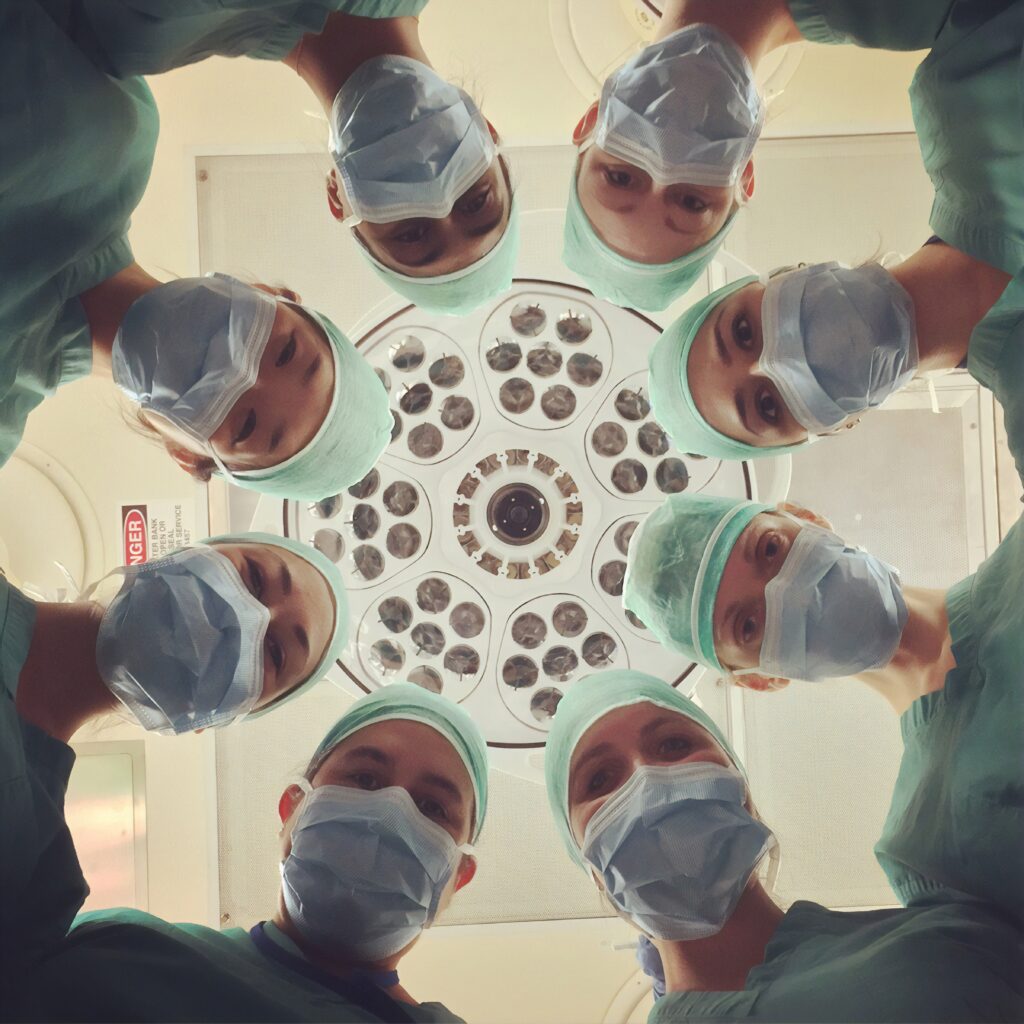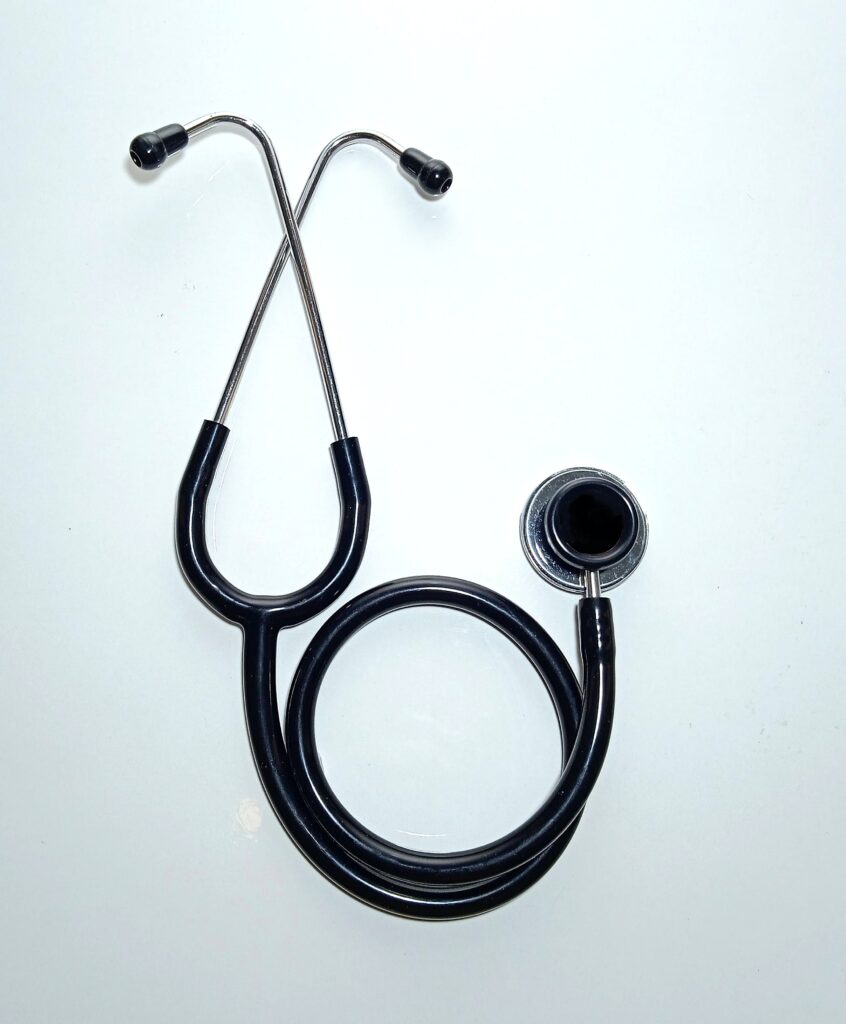It has been recognized that an average doctor-patient ratio would be one doctor for 1,00,000 people but in India, there is only one doctor for 7200 people as per available statistics.
What is medical negligence?
Medical negligence, also called medical malpractice, is the area of medical law and ethics that covers clinical mistakes in treating patients.
Medical negligence is an act of inappropriate or incompetent treatment of a patient by a physician.
This includes neglecting the care by a nurse, doctor, surgeon, pharmacist, or other medical professionals.
Medical negligence leads to ‘medical malpractice’ in which victims experience some form of injury in the treatment provided by a physician or other medical practitioner or health care professional.
Examples of medical negligence
Some examples of medical negligence can be as follow –
• Failure by a physician or medical personnel to make a correct diagnosis.
• Failure to properly treat the patient.
• Failure to refer the patient for consultation with another physician when called for.
• Performing an incorrect operation on a patient.
• Administering wrong medication, treatment or dosage that may cause additional medical problems to the patient.
• Delays in diagnosis or treatment for a serious condition, resulting in permanent injury or death.
• Failing to note and treat a reaction to a medication or have an allergic condition.

Most medical errors are the result of carelessness or may be caused by faulty communication, misperception, poor judgment on the part of health care professionals, or neglect or delay in diagnosing the patient’s illness or injury.
In other cases, liability may arise because of substandard performance by the physician rather than any actual error.
Who has the burden of proof?
The patient must prove that not only was there a breach of duty but also that as a direct result this loss occurred.
Even if negligence is proved, compensatory damages cannot automatically be awarded to victims of negligent treatment without proof that they suffered harm as well (i.e., experienced physical injuries from professional malfeasance during medical care or diagnostic procedures).
The problem: facts and figures
Negligence in the diagnosis and treatment of illness is a serious problem.
According to the National Center for Injury Prevention and Control, the United States, “medical errors” are responsible for over 98,000 unnecessary deaths each year.
A particular study found that “an estimated 44% of patients suffered some degree of injury during a hospital stay; 7% experienced adverse events that contributed to their deaths.”
In India, things are not different. According to a report by the Parliamentary Standing Committee on Health and Family, medical negligence is of grave concern in India today.
The National Crime Records Bureau for 2015 reports 31,761 deaths due to medical negligence. (Link here)
Considering that the population of India is over 1 billion people, this means 0.03% of India’s population dies due to medical negligence each year.
This means 3 out of every 10,000 people die in a general ward (i.e., non-ICU) due to medical negligence in India today.
Thus, there is an urgent need for better diagnosis and treatment.
Types of medical negligence
Medical negligence can occur in a variety of ways. Often, it happens when a doctor deviates from the required level of care. Some common areas of medical negligence are as follows:
– Incorrect diagnosis – If a patient is not treated properly due to a defect in the diagnosis, the doctor can be held liable for any further injury or damage caused as a result of the wrong diagnosis.
– Diagnostic delay – Delayed diagnosis can cause unnecessary injury to the patient if the illness or injury ceases to be worse over time than treatment.
– Error in surgery – Surgery in the wrong place, cuts of any internal organ, severe blood loss, or foreign object left on the patient’s body, all fall under the surgical error and the doctor can be held liable.
– Unnecessary surgery – unnecessary surgery is often associated with a misdiagnosis of a patient’s symptoms or a medical decision without proper consideration of alternatives or risks.
– Maternity and childbirth dysfunction – Childbirth is difficult for a woman and can be very bad if not treated properly by doctors and nurses. There are many cases of medical negligence during childbirth which include severe birth defects, labour problems, misdiagnosis of the newborn medical condition, etc.
Factors responsible for deaths due to medical negligence
There are four primary factors that contribute to the rise in death rates from medical negligence:
1. There is an acute lack of doctors and other medical staff at hospitals across the country;
2. The mindset of junior doctors has not changed over the past few decades; they continue to believe it is acceptable to work for 100 hours in a week – every week – throughout their career, because everyone else does so too;
3. A doctor is legally restricted from working more than 48 hours a week (on average), so s/he has to make up for the hours with “off-duty” work. This includes collecting blood samples, doing lab tests and delivering babies;
4. Compassion is missing – a principle that tells medical practitioners not to treat patients as mere bodies but consider their human side too.
On the other hand, it is also said that a doctor in India puts his family before his country because of a very poor pay scale and job requirements which takes a body toll on him/her.
About 30 or 40 years ago India did have some of the world’s best doctors — living in luxury compared to what they earn today — but many of them have emigrated to Britain, the U.S., Australia and other countries in search of good scale.
Recently, in an article, a 32-year old doctor committed suicide as she could not bear the humiliation at the workplace.
Her seniors were allegedly “demanding favours”. The officials have promised strict action against the accused. But is it enough?
Until there is some change in our attitude as well as strict implementation and adherence to rules, we will keep losing lives.
According to PIB (Press Information Bureau), India ranks poorly when it comes to health care standards; India spends around 4.5% of its GDP on public health, which is one of the lowest in the world. In terms of per capita expenditure on health, India ranks 137th in the world. In terms of the percentage of total government expenditure on health, it ranks 125th.
According to a report by OECD Health Data (2009), even though public spending accounts for 78% of all spending on health care in India, there is an urgent need to increase this further and spend more efficiently so that the entire population can have access to quality healthcare.
In recent times, we have seen an increasing number of scandals related to medical negligence/fudging records etc coming out in open. The common examples are doctors who over-charge their patients or those who make false claims about treating incurable diseases like AIDS, thereby cheating them off huge sums.
Medical malpractice claims often involve complex legal and technical issues requiring the expertise of specialized attorneys and expert witnesses with advanced training and/or experience in medicine, surgery, law and other specialities related to a case.
Such damages may include economic loss (past and future), pain & suffering, emotional distress etc.
Even though it is not easy for the plaintiff to prove that malpractice occurred, ‘Medical experts’ can help gather more evidence to support possible medical negligence during the course of their professional duties as medical professionals.
Filing a complaint against medical negligence in India
• File a complaint with the local police and the state health council concerned.
• If the complaint is lodged with the police, they can continue to refer the complaint to the State Medical Council.
• Should the council find sufficient evidence to take the case seriously, they will send the necessary reports to the courts.
• In the event of a criminal offence, the case will be handled by the State government and tried in a criminal court.
• After an investigation, if the council finds that the hospital/doctor is in error and has the potential to endanger additional lives, it can suspend the doctor/hospital license until further investigation.
• After the final report has been completed, if the doctor or hospital is found guilty, the penalty will be determined after considering the nature and seriousness of the negligence.
• In the event that a patient is dissatisfied with the Council’s efforts, he or she may apply to the MCI.
• If the patient wants a refund, he can go to the consumer court, as they have the power to withdraw the money.
• In the event that a patient is dissatisfied with a decision made by a consumer court, they can go to the National Consumer Redressal Forum or go to the High Court to try the case.
What are the challenges faced by the victim?
• The challenge for the family of a victim is to collect and gather as much proof as possible, including medical records and bills.
• Obtaining information on where one was treated and by whom can be very difficult, especially when most of the evidence will be circumstantial (not direct).
• If there is a criminal case in progress, it may be hard to get information from accused doctors or hospitals, since they are required not to reveal anything outside of court without permission from their respective legal teams.
• It takes a lot of time to prove medical negligence.
• Physicians, upon discretion, have been negligent, may remove evidence that makes it more difficult for the patient to prove a claim.
• There are not many lawyers who are familiar with how such cases work, and what needs to be done to ensure victory.
• Insurance companies refuse to help through various loopholes as legal costs are too high to justify a claim.
• In many cases, families decide not to go ahead with lodging an FIR as they lack money or have other commitments such as young children or elderly parents who need care.
• They also face social stigma in some cases.
The whole process is time-consuming and difficult. This leads to the patient being retrenched.
What can be done to avoid medical negligence?
Several steps can be taken to improve the situation. Some of them are;
• The doctor should inform the patient about all the symptoms before commencing treatment.
• The patient must be given access to all medical records and be allowed to ask questions about his/her health condition without hesitation.
• Laboratory tests should not be carried out unless they are necessary for a successful diagnosis, and any laboratory test results that are reported back must include an explanation of what those results mean in relation to the illness being treated by the physician or specialist.
• A hospital should have properly trained staff who will help keep patients safe during their stay and coordinate services such as catering, housekeeping etc.
• Hospitals should have facilities for children since they might need special care in addition to their parent’s care.
• Trust in medical science. If there is any complaint about some disease, take the advice of experts before making a decision.
• Educate yourself about your health. It may be difficult to get insurance policies and hospitalization in case of serious illness if you are not aware that you have other problems such as high blood pressure or diabetes.
• Doctors must recommend medical testing even when symptoms appear mild because they do not exist alone. This could help them identify the problem at an early stage and take the necessary steps.
• Many patients tend to rely on doctors’ opinions because this is their subconscious feeling responsible for their life, but patients should also play an active role in their treatment. This would help them obtain the most accurate diagnosis and assist in the decision-making process by taking responsibility for their own health.
• Avoid doctors who make promises that seem too good to be true or who recommend expensive treatments.
The other important thing that needs to be done is to make sure that the hospitals are held responsible for this and check whether they have taken any steps on their own end.
One way would be to ensure that patients’ families are given priority when it comes to making a choice among doctors and specialists at hospitals.
Hospital as a victim!
Before registering a case, the police should ask for details such as photographs, timelines and medical reports so as to avoid unnecessary action being taken against hospitals.
In some cases, there is also an agent-patient nexus which leads to misinformation spreading about what actually happened during treatment. Therefore, before taking any action against the hospital, it is important to establish what actually transpired.
Hospitals need to develop better communication channels with the police so that this unnecessary friction can be avoided.
At face value, hospitals may seem like easy targets for police complaints but it must be understood and accepted that these complaints are a result of misunderstandings and not malpractice on part of doctors or other staff members working there.
Hospitals should therefore take steps to proactively clear such misconceptions whenever they come up in order to avoid prolonging these cases.
It is also essential for patients who suffer injuries in accidents/violence to file FIRs immediately at their local stations as this will help hospitals in the long run.
Conclusion
Medical negligence is a major issue in India and it should be taken care of so that other medical profession doesn’t have to face such ordeals again.
Hospitals and their authorities need to take steps proactively otherwise many more cases will come up which can be avoided by once taking step towards it.
If all the factors mentioned under “What can be done to avoid medical negligence?” are followed honestly, then most of the time, such cases can be avoided.
If one is sure about the negligence, it is always better to take action against medical negligence and file a case. It will just not only be for one person’s life but will also help us all throughout the future as hospitals and their authorities need to work with more responsibility towards society.
Disclaimer
Some inputs have been given by Swarnima Jha (LinkedIn) of New Law College, Pune.







